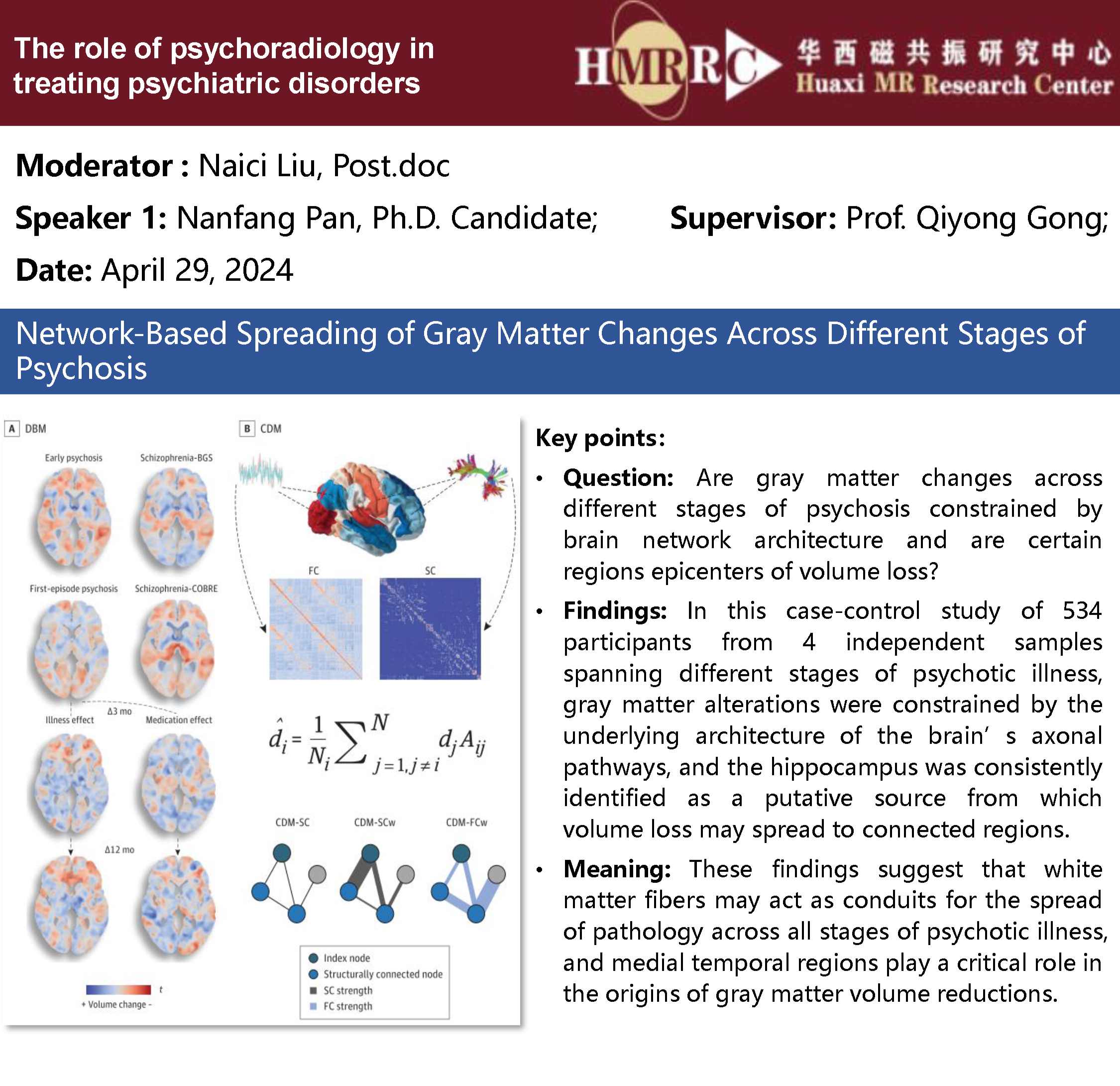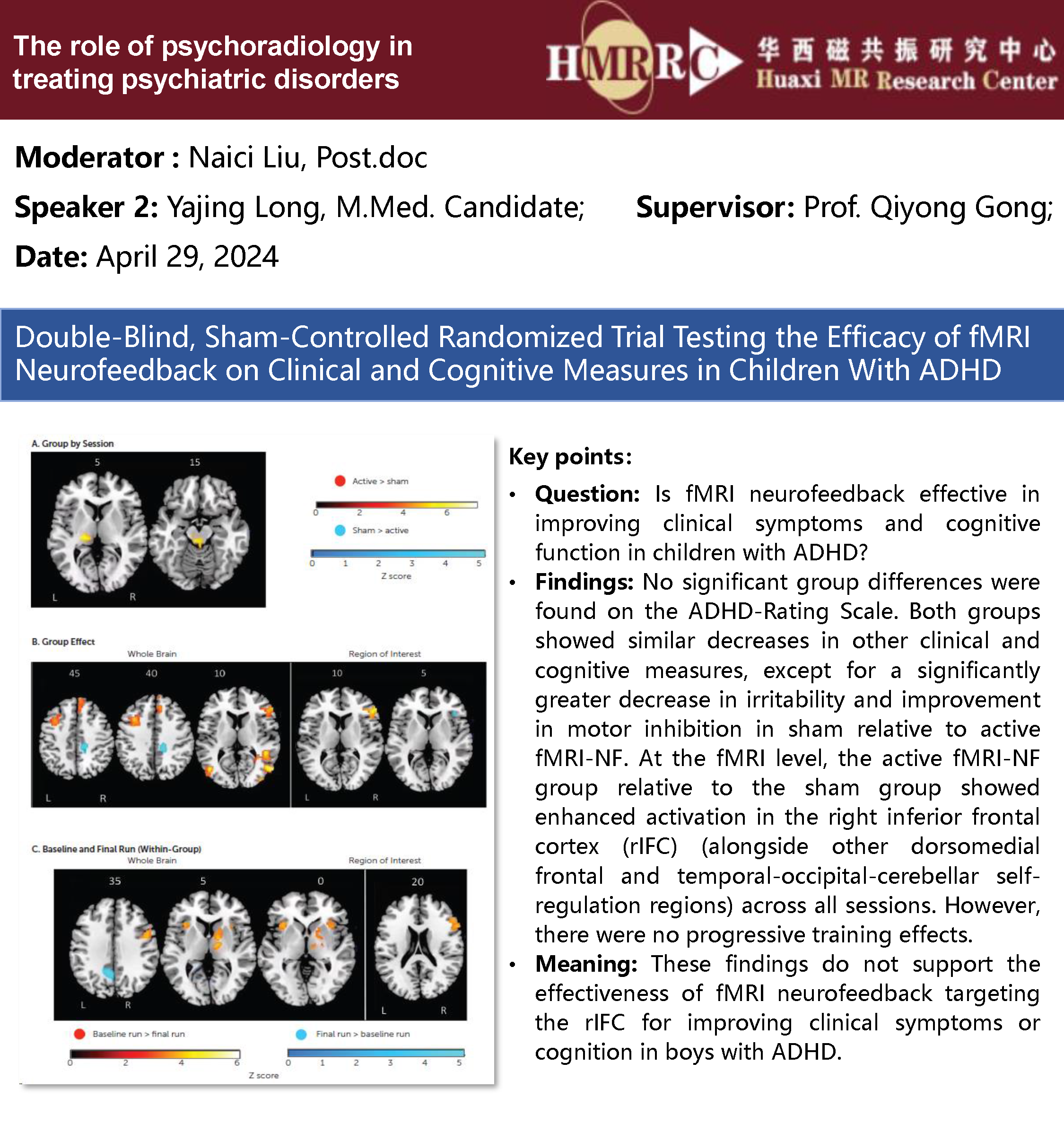Topic: The role of psychoradiology in treating psychiatric disorders
Speaker 1 : Nanfang Pan, Ph.D. Candidate
Date: 29/04/2024, 14:00
Location: The lab of HMRRC (10011, the 8th Teaching Building)
Speaker 1: Nanfang Pan, Ph.D. Candidate
Keypoints:
Questions: Are gray matter changes across different stages of psychosis constrained by brain network architecture and are certain regions epicenters of volume loss?
Findings: In this case-control study of 534 participants from 4 independent samples spanning different stages of psychotic illness, gray matter alterations were constrained by the underlying architecture of the brain’s axonal pathways, and the hippocampus was consistently identified as a putative source from which volume loss may spread to connected regions.
Meaning: These findings suggest that white matter fibers may act as conduits for the spread of pathology across all stages of psychotic illness, and medial temporal regions play a critical role in the origins of gray matter volume reductions.

Speaker 2: Yajing Long, M.Med. Candidate
Title: Double-Blind, Sham-Controlled Randomized Trial Testing the Efficacy of fMRI Neurofeedback on Clinical and Cognitive Measures in Children With ADHD.
Keypoints:
Questions: Is fMRI neurofeedback effective in improving clinical symptoms and cognitive function in children with ADHD?
Findings: No significant group differences were found on the ADHD-Rating Scale. Both groups showed similar decreases in other clinical and cognitive measures, except for a significantly greater decrease in irritability and improvement in motor inhibition in sham relative to active fMRI-NF. At the fMRI level, the active fMRI-NF group relative to the sham group showed enhanced activation in the right inferior frontal cortex (rIFC) (alongside other dorsomedial frontal and temporal-occipital-cerebellar self-regulation regions) across all sessions. However, there were no progressive training effects.
Meaning: These findings do not support the effectiveness of fMRI neurofeedback targeting the rIFC for improving clinical symptoms or cognition in boys with ADHD.
